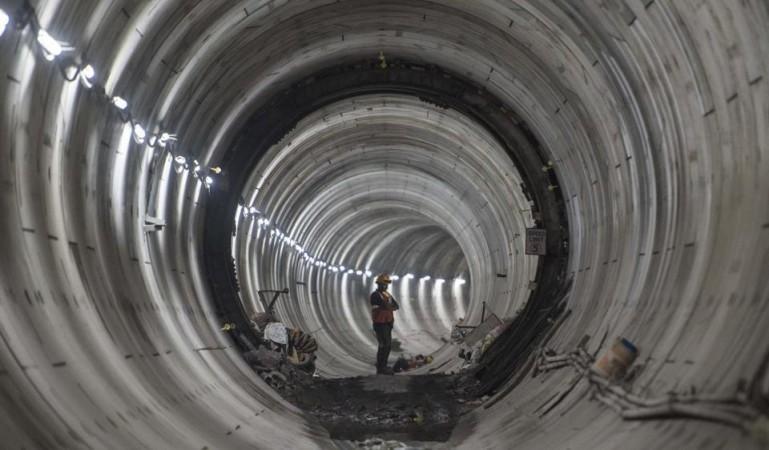After a delay of several years, the underwater East-West Kolkata metro rail project is expected to be completed by March 2022. A final instalment of Rs 200 million is awaited by the Metro Rail Corporation over the next two years from the Indian Railway Board for the completion.
The project, which began in 1984 and was due to expand by 2014, had run into numerous problems, including squatters on the planned route. The issues contributed to the surge in its cost, amounting to Rs 86 billion rupees for some 17 kilometres from 49 billion rupees for 14 km.

A soft loan of 41.6 billion rupees from the Japan International Cooperation Agency (JICA) is helping fund 48.5 percent of the project. With an interest rate between 1.2 percent and 1.6 percent, the Kolkata Metro Rail Corporation will repay the loan over 30 years after an initial six-year moratorium.
The East-West metro project is 74 percent owned by India's Railway Ministry and 26 percent by the nation's Ministry of Housing and Urban Affairs. "We don't anticipate any further cost escalation now," said Manas Sarkar, the managing director at KMRC.
The new line, that will take less than a minute to cross a 520-meter underwater tunnel, is expected to carry about 900,000 people daily which is roughly 20 percent of Kolkata's population. It currently takes about 20 minutes to use the ferry and anywhere upward of an hour to cross the Howrah bridge.

"About 40 percent of total transport demand will be tackled by these two metro services. It will be a relief for environmental pollution and the city should be much more decongested," Manas said.
Here are five things to know about Kolkata's underwater metro project:
- The 16.6-km long Kolkata East-West Metro project will have the county's first underwater tunnel.
- The metro line has 520-metre twin tunnels built 30 metres below the riverbed.
- The tunnel is provided with four-layers of protection to shield it from the water of the mighty Hubli river.
- The section between Howrah and Mahakaran metro stations will be under the river for only about a minute when the train passes through the tunnel at a speed of 80 km per hour.
- According to Railways estimate the project will ferry an estimated one million passengers per day by 2035.








